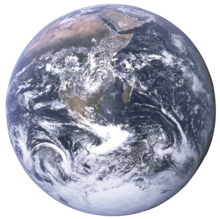
Vermont Law School (VLS) is a private law school in South Royalton, Vermont. The Law School offers several degrees, including Juris Doctor (JD), Master of Laws (LLM) in Environmental Law, Master of Environmental Law and Policy (MELP), Master of Food and Agriculture Law and Policy (MFALP), Master of Energy Regulation and Law (MERL), and dual degrees with a diverse range of institutions. According to Vermont Law School's 2018 ABA-required disclosures, 61.5% of the Class of 2018 obtained full-time, long-term, JD-required employment nine months after graduation.

Northern Arizona University (NAU) is a public research university based out of Flagstaff, Arizona. It was founded in 1899 as the final public university established in the Arizona Territory, 13 years before Arizona was admitted as the 48th state of America.

Environmental studies is a multidisciplinary academic field which systematically studies human interaction with the environment. Environmental studies connects principles from the physical sciences, commerce/economics, the humanities, and social sciences to address complex contemporary environmental issues. It is a broad field of study that includes the natural environment, the built environment, and the relationship between them. The field encompasses study in basic principles of ecology and environmental science, as well as associated subjects such as ethics, geography, anthropology, policy, education, politics, urban planning, law, economics, philosophy, sociology and social justice, planning, pollution control and natural resource management. There are many Environmental Studies degree programs, including a Master's degree and a Bachelor's degree. Environmental Studies degree programs provide a wide range of skills and analytical tools needed to face the environmental issues of our world head on. Students in Environmental Studies gain the intellectual and methodological tools to understand and address the crucial environmental issues of our time and the impact of individuals, society, and the planet.
The Earth Institute is a research institute at Columbia University that was established in 1995. Its stated mission is to address complex issues facing the planet and its inhabitants, with a focus on sustainable development. With an interdisciplinary approach, this includes research in climate change, geology, global health, economics, management, agriculture, ecosystems, urbanization, energy, hazards, and water. The Earth Institute's activities are guided by the idea that science and technological tools that already exist could be applied to greatly improve conditions for the world's poor, while preserving the natural systems that support life on Earth.
The Rausser College of Natural Resources (CNR), a college of the University of California, Berkeley, is the oldest college in the UC system and home to several internationally top-ranked programs. Rausser's Department of Agriculture & Economics is considered to be one of the most prestigious schools in agricultural economics in the world, ranking #1 according to the Journal of Agricultural and Applied Economics, #1 by the Chronicle of Higher Education, #1 by Perry for its Ph.D. programs and in International Trade, #1 by the National Research Council in Agricultural & Resource Economics, and #1 by U.S. News in Environmental/Environmental Health. In environmental disciplines, QS World Rankings recognizes the University of California, Berkeley, as the world's leading university in Environmental Studies with 100 points in Academic Reputation. U.S. News also ranks it as the best global university for environment and ecology. A study of AJAE authors and their university affiliations found it to have the highest number of pages per research faculty member.
The Jackson School of Geosciences at The University of Texas at Austin unites the Department of Geological Sciences with two research units, the Institute for Geophysics and the Bureau of Economic Geology.

The University of Florida Institute of Food and Agricultural Sciences (UF/IFAS) is a teaching, research and Extension scientific organization focused on agriculture and natural resources. It is a partnership of federal, state, and county governments that includes an Extension office in each of Florida's 67 counties, 12 off-campus research and education centers, five demonstration units, the University of Florida College of Agricultural and Life Sciences, three 4-H camps, portions of the UF College of Veterinary Medicine, the Florida Sea Grant program, the Emerging Pathogens Institute, the UF Water Institute and the UF Genetics Institute.

The Conservation Effects Assessment Project (CEAP) was established in 2002 to quantify the environmental impact of the United States Department of Agriculture's (USDA) conservation program. The project focuses on how watersheds are affected. CEAP monitored 14 benchmark watershed sites. The CEAP's vision is to enhance "natural resources and healthier ecosystems through improved conservation effectiveness and better management of agricultural landscapes. The goal is "to improve efficacy of conservations practices and programs by quantifying conservation effects and providing the science and education base needed to enrich conservation planning, implementation, management decisions, and policy."

The University of Florida College of Agricultural and Life Sciences (CALS), founded in 1964, is a college of the University of Florida.

The TERI School of Advanced Studies is a higher education institute in New Delhi, India which specialises in the field of sustainable development. It was established in 1998 by TERI. In 1999, the TERI School of Advanced Studies was granted the 'Deemed to be University' status by the University Grants Commission (UGC).
A sustainability organization is (1) an organized group of people that aims to advance sustainability and/or (2) those actions of organizing something sustainably. Unlike many business organizations, sustainability organizations are not limited to implementing sustainability strategies which provide them with economic and cultural benefits attained through environmental responsibility. For sustainability organizations, sustainability can also be an end in itself without further justifications.
The College of Natural Resources and Environment at Virginia Tech contains academic programs in forestry, fisheries, wildlife sciences, geography, and wood science. The college contains four departments as well as a graduate program in the National Capital Region and a leadership institute for undergraduates.
North American collegiate sustainability programs are institutions of higher education in the United States, Mexico, and Canada that have majors and/or minors dedicated to the subject of sustainability. Sustainability as a major and minor is spreading to more and more colleges as the need for humanity to adopt a more sustainable lifestyle becomes increasingly apparent with the onset of global warming. The majors and minors listed here cover a wide array of sustainability aspects from business to construction to agriculture to simply the study of sustainability itself.
The contributions of women in climate change have received increasing attention in the early 21st century. Feedback from women and the issues faced by women have been described as "imperative" by the United Nations and "critical" by the Population Reference Bureau. A report by the World Health Organization concluded that incorporating gender-based analysis would "provide more effective climate change mitigation and adaptation."










